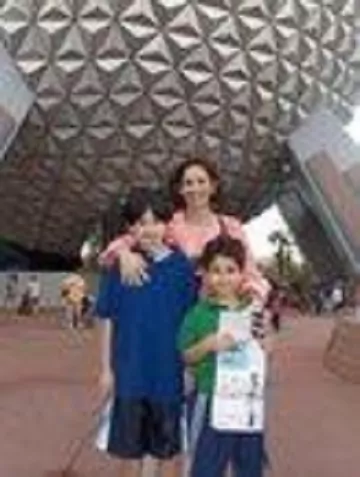
My son Josh was 12 years old when he attended a three week camp that was recommended for him and and run by his occupational therapist. He had some sensory issues that made writing and sports challenging, but he was a successful child with friends, activities and a bright future. This ‘camp’ was designed to stumilate the sensory and vestibular systems to help the child perform better in school. It seemed harmless enough. How wrong I was. About half way through the camp, he started to complain of stomach aches. I told the therapist and asked that he sit out of any spinning activities. I later learned that this was a warning sign that she ignored. About 2 weeks after the program ended, I realized something was seriously wrong. My son was very, very motion sick. By September, it was all day, every day, accompanied by sweating, nervousness, pallor, and hyperpigmentation on his arm. My local Neurologist did tests, including vestibular tests and said he should do VRT. But Josh continued to get worse. He could not participate in the therapy at all (having become too sick on the drive to the clinic) and when I went back to the pedicatric neuro, she told me that she really didn’t expect it to help anyway, and that he should see a psychiatrist.
That started a whirlwind of tests, doctor visits, therapists including ENT, chiropractor, craniosacral therapy, Boston, Chicago and Yale. There are many drugs that doctors will not precribe to children, so the respite that many receive from valium was not available to Josh. Vestibular suppressants did not work, Zofran did not work. He was suffering tremendously: He was terrified to sleep, was motion sick ALL the time, with no relief, and could not even walk to the end of the driveway. His neck was very tender and could not even be touched. The sensory symptoms were even worse: He would have increased nausea from noise, a movie, or even being stroked on the arm. In despair, he retreated to video games. He could do almost nothing else. My once ‘gifted’ student could not read, walk, play or even follow a conversation. By October, panic had set in for all of us.
Having a teen with a ‘stomach problem’ sets off alarm bells for most practioners and countless of them suggested it was a psychological problem. I knew that was completely off. Finally in November, he was diagnosed with a central vestibular disorder, but the doctor in Boston did not return my doctors calls for months, so my pedicatrician was unable to determine dosing of the recommended Gabapentin and Effexor until January.
In the meantime, craniosacral therapy seemed to calm the sympathetic nervous system symptoms a bit. The neurological chiropractor ws doing gentle adjustments of his extremities. Endocrine tests showed very low cortisol levels, which I believe is the result of adrenal fatigue from the months of unrelenting nausea and nervous system reactions. Vestibular tests showed small abnormalities.
Under much pressure, he returned to school on a limited basis in October, but he could not concentrate, participate or do much of anything. Dragging him there every day was a nightmare which I regret. It seems that we take adults’ symptoms far more seriously than children’s, and several practioners advised us to ‘discipline’ him more, and not let him ‘get out of’ anything. He had become very emotional and depressed so we took him to a psychologist who told me that the only problem Josh actually had was poor parenting and that he needs to ‘get on with it’ because he might never get better. Thankfully, I did not listen.
It is one year later. He is slowly getting better. He can go to a restaraunt, movie and social event with minimal nausea. He can walk around the block, but still cannot run. He gets sick, but now there is recovery, whereas before there was none. Dr. Hain predicted that by November, Josh would be operating at 90% and I hope he is right. He is doing therapy, and vision therapy and I am trying to get him into Rusk Vestibular Rehab at NYU.
I have learned that when it comes to neuroligical problems, diagnosis is the easy part. Treatment is much more challenging, but I am not giving up. Someday, I will see him play soccer again and I will appreciate it more than anything.